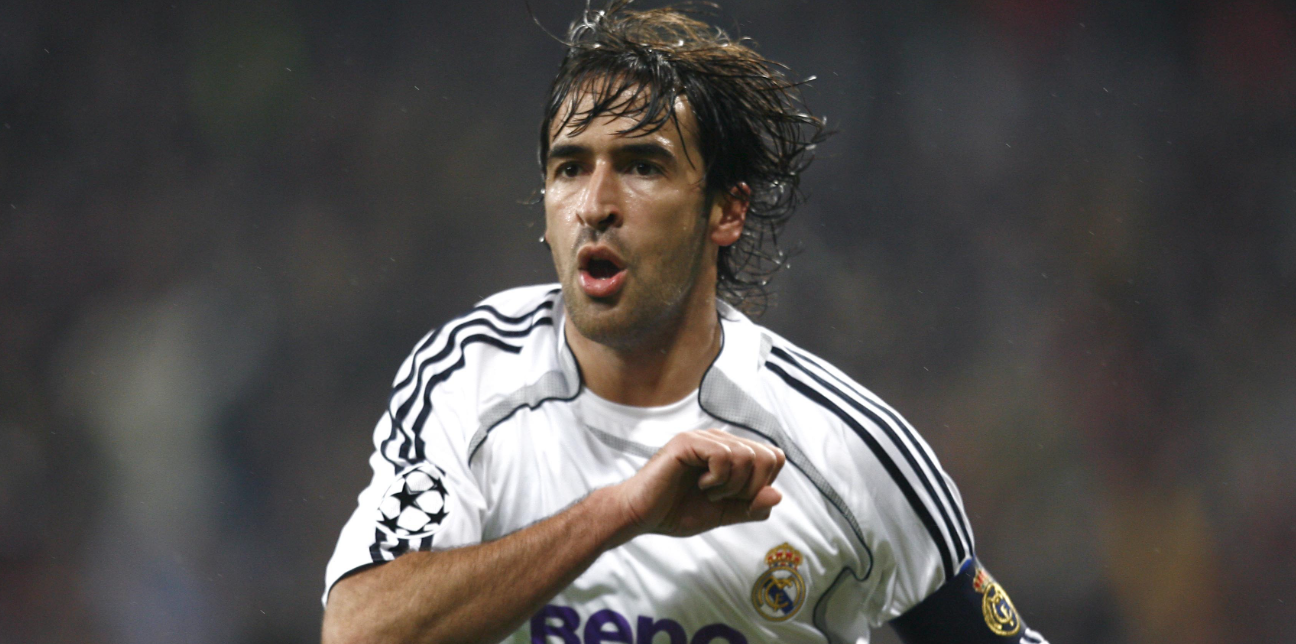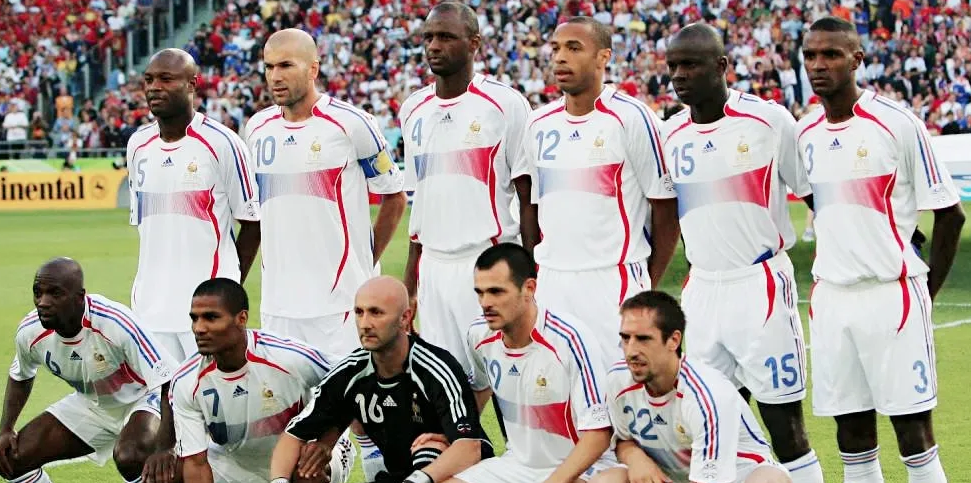
1. The Birth of Raúl González
- Early Life and Career Beginnings
- Raúl González Blanco was born on June 27, 1977, in Madrid, Spain. His career began at Real Madrid’s youth academy, where he quickly rose through the ranks. Making his senior debut at 17, he became a symbol of Madridismo, embodying the club’s attacking ethos .
- Club Career Milestones
- Real Madrid Legacy: Over 16 seasons at Real Madrid, Raúl scored 323 goals in 741 appearances, winning 6 La Liga titles, 3 UEFA Champions Leagues, and numerous domestic honors. His partnership with Fernando Morientes and later Ronaldo formed one of Europe’s most lethal attacking trios .
- European Dominance: Raúl held the record for most UEFA Champions League goals (71) until Cristiano Ronaldo surpassed him. He scored in two Champions League finals (2000 and 2002) and became the first player to reach 100 appearances in the competition .
- International Career
- Raúl represented Spain in three World Cups and two European Championships. Though his international career ended prematurely in 2006, he remains Spain’s third-highest goalscorer with 44 goals in 102 appearances. His leadership as captain during the 2002 World Cup guided Spain to the quarterfinals .
- Legacy and Post-Playing Career
- Known for his clinical finishing, positional intelligence, and humility, Raúl retired in 2015 after spells with Schalke 04, Al Sadd, and New York Cosmos. He transitioned into coaching, managing Real Madrid Castilla (the club’s reserve team) since 2019, where he continues to mentor young talent.

2. 2006 FIFA World Cup: France's 3-1 Victory Over Spain
On June 27, 2006, the FIFA World Cup in Germany witnessed a pivotal Round of 16 clash between France and Spain at the AWD-Arena in Hannover. This match became a defining moment for both teams, particularly for France’s resurgent midfield maestro Zinedine Zidane and Spain’s iconic captain Raúl González, who celebrated his 29th birthday that day .
Match Dynamics and Key Moments
Spain entered the game as favorites, having won all three group matches, while France had struggled initially but found form with Zidane’s return from suspension. The match unfolded in dramatic fashion:
Spain’s Early Lead: David Villa converted a penalty in the 28th minute after Lilian Thuram fouled Pablo Ibáñez, giving Spain a 1-0 advantage .
France’s Resurgence: France equalized through Franck Ribéry, whose solo effort in the 41st minute—set up by Patrick Vieira’s precise pass—ignited their comeback. Zidane, operating as a deep-lying playmaker, orchestrated France’s attacks, linking midfield and attack seamlessly .
Vieira and Zidane’s Late Heroics: With seven minutes remaining, Vieira powered home a header from a Zidane cross, and in stoppage time, Zidane sealed the 3-1 victory with a clinical solo finish, dribbling past Spain’s defense .
Tactical Shifts and Impact
France’s manager, Raymond Domenech, adjusted his formation to accommodate Zidane’s return, shifting from a 4-4-2 to a 4-5-1 system. This allowed Zidane to dictate tempo, while Vieira and Claude Makélélé anchored the midfield defensively. Spain’s rigid 4-3-3 struggled to counter France’s fluid transitions, with their midfield trio of Xavi, Xabi Alonso, and Cesc Fàbregas overwhelmed by France’s intensity .
The defeat marked Spain’s first loss under manager Luis Aragonés in 26 matches, ending a 12-year World Cup unbeaten streak. For France, the win set up a quarterfinal clash with Brazil, which they won 1-0, showcasing Zidane’s leadership before his infamous headbutt in the final .




